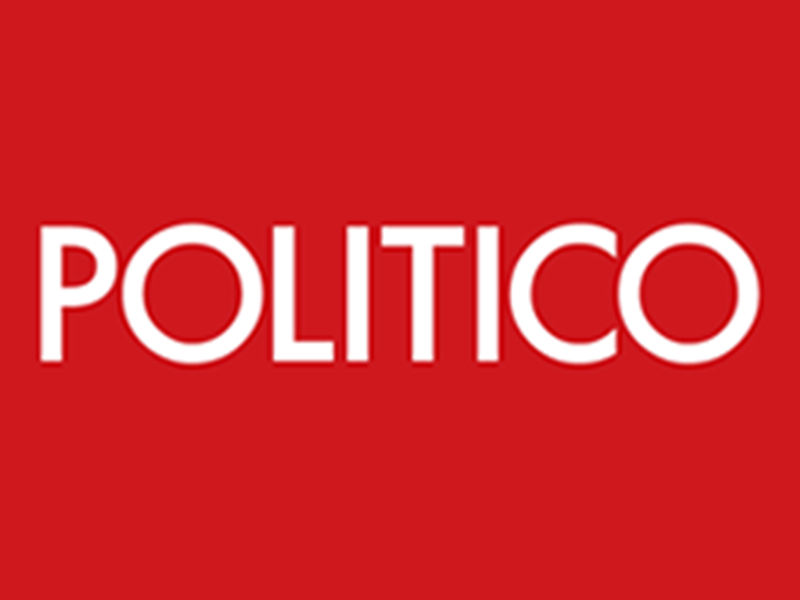Int'l Tax News
Posted on
R&D Regs, Minimum Tax Changes Top Corporate 2024 Watch List

Corporate tax advisers are gearing up clients for 2024 tax code changes to research and development expenses, an election year that could determine the fate of some high-profile laws, and corporate minimum taxes, among other regulatory actions from the IRS and Treasury Department.
Posted on
EVs Must Follow Foreign Entity of Concern Rules for Tax Credit

The IRS updated its clean vehicle tax credits FAQs sheet, emphasizing that vehicles and dealers must follow the rules to be eligible for credits. Vehicles with battery components manufactured or assembled by a foreign entity of concern aren’t eligible for any amount of new clean vehicle credit, even if the vehicle meets the critical mineral applicable percentage requirements for 2024. In addition, qualified manufacturers are required to make an attestation demonstrating compliance with the foreign entity of concern requirements.
Posted on
IRS’s Pillar Two, Foreign Tax Credit Guidance Present Conflicts

Jeffrey Tebbs and Caroline Reaves of Miller & Chevalier Chartered analyze recent guidance addressing the interaction of the US foreign tax credit system with Pillar Two top-up taxes coming into effect in 2024. According to Tebbs and Reaves, it isn’t clear that Pillar Two taxes can (or should) be excluded from the US exceptions for high-taxed income. Nor is it clear how a Pillar Two tax could be ineligible for the US foreign tax credit but nevertheless result in a deemed dividend inclusion.
Posted on
Hong Kong, United Kingdom Start Pillar 2-Related Consultations

Hong Kong started consulting on its implementation of global minimum tax rules for 2025 on the same day the U.K. government announced it is seeking input on more draft guidance for its pillar 2 regime.
Posted on
Gibraltar Plans Pillar 2 Top-Up Tax Legislation for Early 2024

Gibraltar plans to introduce legislation in 2024 to implement a qualified domestic minimum top-up tax on local subsidiaries and permanent establishments of large multinational enterprises.
Posted on
Biden Pushes Strict Climate-Subsidy Rules Despite Energy Producers’ Warnings

Proposed criteria that would determine who gets generous tax credits for producing hydrogen are too strict and could stifle the industry, energy companies say.
Posted on
Canada’s Digital Services Tax Plan Likely to Meet Many Obstacles

Osler’s Patrick Marley and Kaitlin Gray say Canada’s latest move to implement a digital services tax is likely to encounter political and practical challenges related to the tax itself and the OECD’s Pillar One.
Posted on
Colombia’s New Digital Tax Rules Face Implementation Challenges

Baker McKenzie’s Juan David Velasco and Juan Diego Fernandez analyze fiscal challenges arising from economic digitization and Colombia’s recent tax reform. New regulations taking effect on Jan. 1, 2024, consider nonresidents ‘significant economic presence’ as an alternative to the OECD’s proposed guidelines for its two-pillar approach.
Posted on
U.N. Shouldn’t Tinker With Two-Pillar Plan, EU Official Says

Discussions on a plan for international tax cooperation under U.N. auspices is feasible, but rethinking the OECD’s two-pillar global tax reform plan would be “a giant waste of time,” a top European Commission official said.
Posted on
The World’s Most Complicated Tax System Just Got Easier

Brazil signed into law an overhaul to simplify a patchwork of tax codes from its states and thousands of municipalities.
Posted on
Expectations for 2024: Pillar 1 Finds an Off-Ramp

Robert Goulder considers Canada’s refusal to extend the global DST moratorium beyond 2023.
Posted on
Leveling the Pillar 2 Playing Field for the Asset Management Industry

Kevin Brogan, Alistair Pepper, and Daren J. Gottlieb consider the implementation of the pillar 2 global anti-base-erosion rules and ways in which revisions to them may create more consistency with policy objectives.
Posted on
2023: The Judiciary Takes Center Stage

Mindy Herzfeld looks back at key tax litigation from 2023, including Christensen v. United States.
Posted on
Plowgian Hints at Extension of Pillar 1 Negotiation Deadline

The United States expects an extension of the pillar 1 negotiation deadline into 2024 and is working to extend the digital services tax moratorium as well, Treasury’s outgoing OECD negotiator said.
Posted on
Corporate AMT Notice Tackles Double Counting

The IRS and Treasury issued further interim guidance for the corporate alternative minimum tax, addressing potential double counting of income from controlled foreign corporations and modifying prior guidance for tax consolidated groups.
Posted on
UK to Tax Climate-Damaging Imports From 2027

The U.K. will impose a tax on imports with a big overseas carbon footprint, the government announced, in a major new commitment that aligns the country with the EU in efforts to use the global trade system to tackle climate change.
Posted on
EU Carbon Tax Could Cost Africa $25 Billion, AfDB Chief Says

Africa could lose as much as $25 billion annually due to the European Union’s new carbon border tax, hurting the continent’s trade by penalizing valued-added exports such as iron and fertilizers, African Development Bank Group President Akinwumi Adesina said.
Posted on
Tax Havens Race to Lure Companies as 15% Global Levy Looms

The 15% global minimum tax, part of the 2021 global tax pact agreed to by more than 140 countries, seeks to end the “race to the bottom” that has nations competing to offer the lowest corporate tax rates to draw big business investment to their shores.
Posted on
Australia Asks Digital Service Providers About Minimum Tax Plans

Australia started consultations with digital service providers to inform them on global minimum tax implementation plans, data requirements, and potential solutions for future compliance.
Posted on
Supreme Court Wary of Remaking Income Tax

Justices hearing arguments over whether unrealized income could be taxed appear to shy away from a broad ruling.
Posted on
Pillar 2 Makes Some Tax Measures Redundant, EU Stakeholders Say

Several stakeholders have told the European Commission that some anti-tax-avoidance measures, including country-by-country reporting, will not be needed with the implementation of pillar 2 of the global tax reform plan.
Posted on
EU Commission Urges Cooperation Between U.N. and OECD on Tax Work

The European Commission said the U.N. and the OECD should join forces to avoid any overlaps of their tax work, following a U.N. resolution to move international tax negotiations to the U.N.
Posted on
UN Eyes Two Components of Tax Framework, Aims For August Meeting

The United Nations’ framework for international tax cooperation is likely to initially include tackling illicit financial flows and cross-border services, two key areas of concern for developing countries, a UN official said.
Posted on
U.S. Multinationals Are Becoming Less Multinational

Martin A. Sullivan uses new Bureau of Economic Analysis data on U.S. multinational foreign activities for a more detailed perspective now that some of the worst effects of the recent pandemic have subsided.
Posted on
QDMTTs: Pillar 2’s Minimum Tax Trendsetter

Mindy Herzfeld checks in on how countries are using and customizing qualified domestic minimum top-up taxes to meet their pillar 2 goals.
Posted on
Puerto Rico Seeks Global Minimum Tax Consulting Services

Puerto Rico’s Treasury Department is looking for international tax consulting services related to potential implementation of global minimum tax rules under pillar 2 of an OECD-brokered, two-pillar global tax reform plan.
Posted on
Saudi Arabia’s Tax Reforms Aim to Attract Foreign Investors

The Kingdom of Saudi Arabia is aiming to transform into a significant business hub, attracting a growing influx of foreign companies.
Posted on
US Sets Limits on Chinese Content to Receive EV Tax Credits

The Biden administration released long-awaited rules designed to block electric-vehicle manufacturers from sourcing battery materials from China and other foreign adversaries, while giving automakers some flexibility to comply with the new mandates.
Posted on
U.S. Limits China's Ability to Benefit From Electric Vehicle Subsidies

The Biden administration issued new rules to prevent Chinese firms from supplying parts for electric cars set to receive billions of dollars in tax credits.
Posted on
Too Soon to Make Pillar 2 a Blacklist Factor, EU Official Says

The chair of the EU Code of Conduct Group on business taxation said implementation of pillar 2 probably won’t become a determining factor for the list of noncooperative jurisdictions until after the peer review.
Posted on
Taiwan Tax Bill Advances in House With Bipartisan Support

House taxwriters unanimously advanced a fix to the issue of double taxation with Taiwan, moving a unique bill combining approaches from two Senate committees.
Posted on
EU Panel to Widen Checks on Member Countries’ Tax Regimes

Tax measures put in place by EU countries will face closer scrutiny beginning next year for their possible harmful effects on other member countries’ economies, the chair of the bloc’s Code of Conduct Group (Business Taxation) told the European Parliament tax subcommittee.
Posted on
Pillar 2 Peer Review Guidance Expected Soon, Plowgian Says

More pillar 2 guidance is likely to be published by the end of 2023, including advice on the peer review process and on antiabuse rules related to a key safe harbor, a top Treasury official said.
Posted on
EU Won't Introduce Pillar 1 Directive, Commission Official Says

The European Commission has decided against proposing a directive to implement pillar 1 of the OECD’s two-pillar global tax reform plan because the pillar 1 multilateral convention would be enough, an EU official said.
Posted on
Barbados Minister Criticizes Use Of Tax Transparency Blacklists

A minister from Barbados discouraged countries from blacklisting others based on how far they’ve developed their tax transparency frameworks.
Posted on
EU Nearing Full Pillar Two Implementation, But Not Pillar One

European Union countries are largely on track to start applying Pillar Two of the global tax deal next year, but the finalization of Pillar One remains uncertain, an EU official said at a European Tax Adviser Federation seminar.
Posted on
Promising Tax Talks Face Hurdles as Taiwan Bills Go Their Own Way

Tax talks that would combine a beefed-up child tax credit and reinstate full research and development expensing aren’t exactly sizzling, but they are picking up speed after a year in the doldrums.
Posted on
UK Minimum Tax Estimates Are Highly Uncertain, Economist Says

The UK’s projection of £12.7 billion ($15.9 billion) in revenue within the next six years from the global minimum tax is highly uncertain, a top budget economist told lawmakers in a government budget hearing Tuesday.
Posted on
More European Governments Propose Global Minimum Tax Bills

The Austrian, Norwegian, and Slovenian governments have proposed legislation implementing an EU directive for adopting global minimum tax rules under pillar 2 of the OECD’s two-pillar global tax reform plan.
Posted on
IP Transfers and Profit Shifting

Martin A. Sullivan explores financial data for more than 300 multinational companies to uncover trends in intellectual property transfers.
Posted on
U.K. Makes Full Expensing Business 'Tax Cut' Permanent

The United Kingdom will make full expensing for business capital investments permanent as part of a plan to invest £20 billion annually in businesses over the next decade, said Chancellor of the Exchequer Jeremy Hunt.
Posted on
U.N. Tax Cooperation Resolution Passes in Committee Vote

U.N. countries passed a resolution in committee to establish a framework convention for international tax cooperation, which would shift negotiations from the OECD to the U.N.
Posted on
EU to Assess Support for Withholding Tax Relief Framework Deal

While EU countries generally reacted positively to the Spanish EU Council presidency’s proposal exempting comprehensive withholding tax relief systems from some Faster and Safer Relief of Excess Withholding Taxes provisions, several requested time to study the impact.
Posted on
Colombia’s Introduction of Tax Arbitration a ‘Big Advance’

Colombia will seek to allow arbitration in tax disputes for the first time in a major step forward, although questions remain about the proposal’s efficacy, tax professionals say.
Posted on
UK Sees About $16 Billion From Global Minimum Tax Over Six Years

The UK government estimates it will net about £12.7 billion ($15.9 billion) from the global minimum tax over the next six years, according to figures published in its Autumn budget statement.
Posted on
As Its Economy Sputters, Britain Cuts Taxes Ahead of Election

The U.K.’s top financial official, Jeremy Hunt, outlined measures to spur business investment and push more people into jobs.
Posted on
Barbados's Evolving Approach to Pillar 2

Nana Ama Sarfo discusses Barbados's changing approach to pillar 2.
Posted on
Canada Reaffirms Its Plans for Unilateral DST

Despite opposition from business groups and the Biden administration, Canada has confirmed its intent to move ahead with its digital services tax just weeks before its planned effective date.
Posted on
UN Releases Draft Tax Resolution Calling for Framework Treaty

A draft resolution released by the UN calls for the development of a framework convention to make international tax cooperation more inclusive.
Posted on
Corporate Income Tax Rates Decreased Globally Over Last 20 Years

Income tax rates for companies have decreased on average over the past 23 years, according to a report on corporate tax statistics released by the OECD on Tuesday.


































